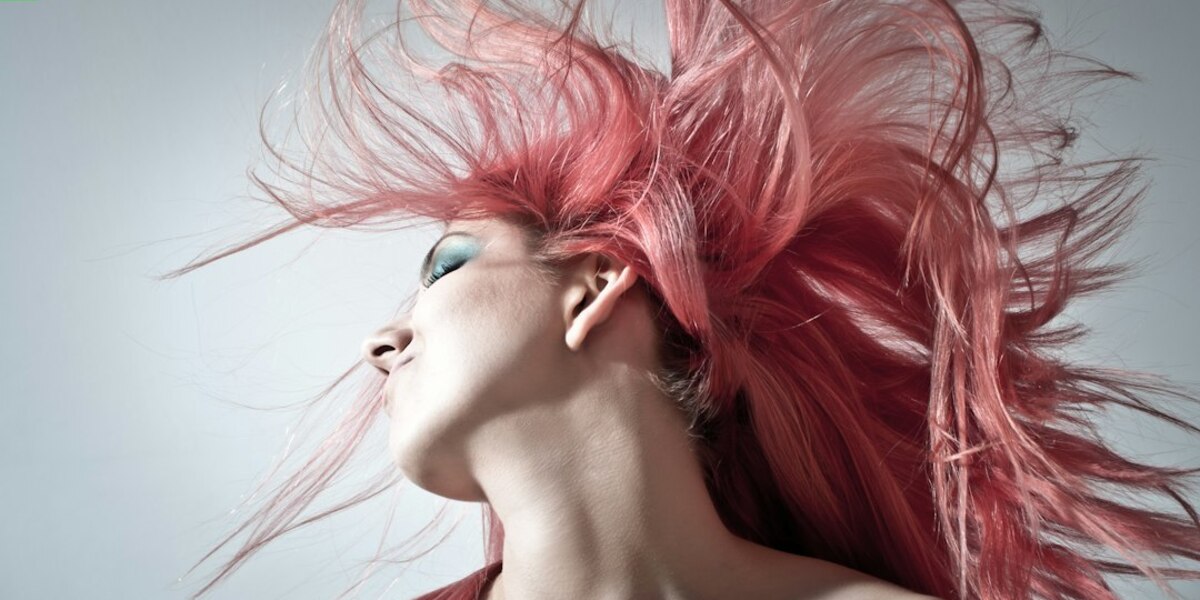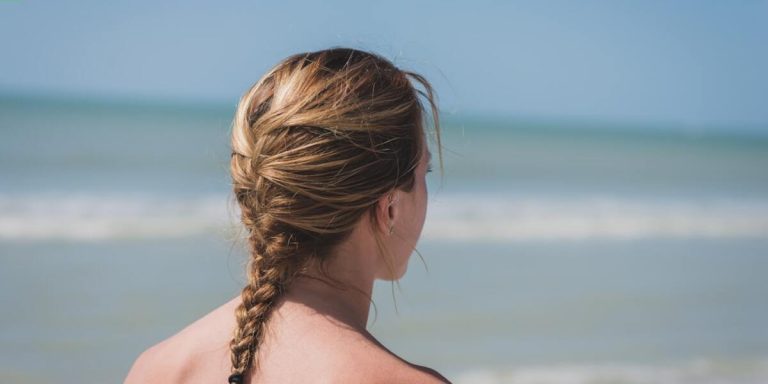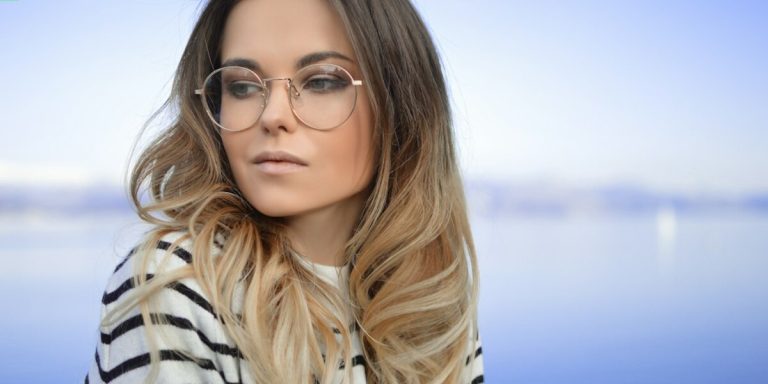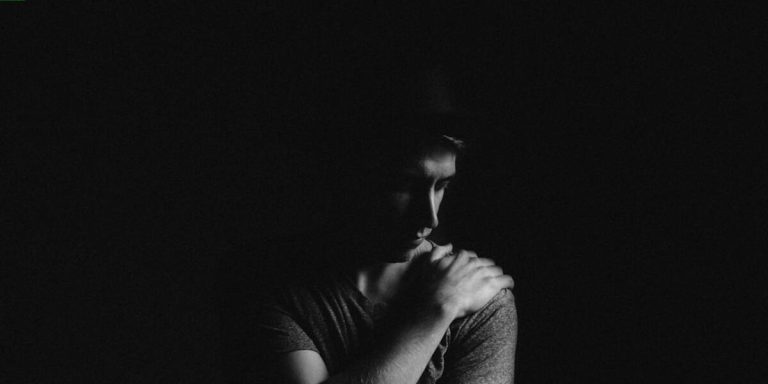Hair Loss After Pregnancy: Treatment and Vitamins to Get Your Locks Back on Track
Experiencing hair loss after pregnancy can be disconcerting, but it’s a common occurrence for many women. Understanding the causes and finding effective “hair loss after pregnancy treatment and vitamins” can help in regaining those luscious locks you had during your journey to motherhood.
In this post, we will delve into why this type of hair loss happens, exploring various treatments that have been proven to work. We’ll also shed some light on different vitamins known for their potential benefits in combating hair thinning or shedding experienced post-childbirth.
Did you know?
Surprisingly, after childbirth nearly 40-50% of women experience postpartum hair loss due to hormonal changes but rest assured, this is a temporary phase and your hair growth cycle will normalize within six months to one year.
Understanding Postpartum Hair Loss: Causes and Timeline
Postpartum hair loss is a common phenomenon experienced by many women after childbirth due to hormonal changes. During pregnancy, heightened levels of estrogen prolong the growth phase of hair, leading to thicker and glossier locks. However, once you welcome your new bundle of joy into the world and hormone levels start returning to their pre-pregnancy state, hairs that were in their prolonged growing stage begin shedding simultaneously — giving rise to what we refer as postpartum hair loss.
To manage post-pregnancy fallout efficiently, consider these treatments:
- Use vitamins targeted towards reviving healthy hair growth.
- Take dietary supplements containing biotin, vitamin B6, iron, zinc, and omega-3 fatty acids to combat thinning due to hormonal changes after childbirth.
You can also regularly massage your scalp with essential oils like rosemary and lavender to improve blood circulation. This leads to stronger follicles and reduced hair breakage. However, consult a healthcare provider before starting any supplement regimen for safety and efficacy based on your medical history and condition.
Understanding and patience are key on the road to recovery; look forward to regaining your crowning glory. Start anew with a well-nourished head of confidence.
The Hormonal Shifts Leading to Hair Thinning After Childbirth
The hair loss that many new mothers experience, also known as postpartum alopecia, can be a startling and distressing development. Notably, this phenomenon is largely due to hormonal shifts occurring in the body after childbirth.
During pregnancy, you may have enjoyed thicker than usual tresses thanks to elevated levels of estrogen hormones. These higher hormone levels extend the growing phase of your hairs leading to fewer strands falling out – hence fuller locks during those nine months.
However, these joyous days for your hair are typically short-lived. After delivery when your hormone composition recalibrates back towards its pre-pregnancy state which involves plunges in estrogen level; this shift triggers an increased shedding stage or telogen effluvium – resulting in thinning crowns and receding hairlines common among recent moms.
This process often commences about three months following birth but rest assured it generally resolves within several more months without requiring significant treatment interventions most times.
That said if you notice excessive or prolonged periods of shedding beyond what seems normal for you (more than roughly 100-150 hairs per day), do consult with a healthcare professional who’s conversant with dermatological issues related to post-partum stages.
Typical Duration of Post-Pregnancy Hair Shedding
The onset of postpartum hair loss generally occurs around three months after childbirth, peaking at around four months. The time frame can vary from woman to woman but typically concludes by the baby’s first birthday. This phenomenon is quite normal due to hormonal changes that occur in a woman’s body during and after pregnancy.
During pregnancy, elevated levels of certain hormones cause the hair growth phase to extend, resulting in less shedding and thicker locks. After delivery, these hormone levels drop back down causing increased shedding or hair loss known as postpartum alopecia.
Many women notice alarming amounts of strands on their brush or shower floor; however rest assured this condition is usually temporary. By your child’s first birthday -or sometimes even sooner- your mane should return to its pre-pregnancy state.
Consider the various treatments available to combat excessive post-pregnancy hair fall effectively.
1) **Hair Loss Vitamins:** A proper intake of vitamins like Vitamin B complex helps stimulate cell regeneration leading towards stronger follicles with improved elasticity preventing breakage.
2) **Healthy Diet:** Protein-rich foods such as fish, eggs along with antioxidant-rich fruits echo similar benefits promoting overall scalp well-being which indirectly boosts natural re-growth processes.
3) **Scalp Massages & Exercise**: Both act as stress relief aids reducing inflammation thereby encouraging new growth via optimum blood flow into associated areas.
Effective Treatments for Postpartum Hair Regrowth
Postpartum hair loss, a common occurrence in new mothers due to hormonal changes after birth, can often be disconcerting. However, it is important to note that this temporary phase can be effectively managed with the right treatments and vitamins. One of such effective remedies includes over-the-counter topical applications like Minoxidil (Rogaine), confirmed by dermatologists as safe for use even while nursing.
Vitamins also play an instrumental role in promoting healthier locks post-pregnancy. Taking prenatal supplements even after childbirth could help maintain healthy hair growth because they are rich sources of critical nutrients including folic acid, iron and biotin designed specifically for motherhood needs.
Moreover, embracing dietary adjustments which include wholesome foods rich in proteins – think eggs and fish; omega-3 fatty acids found commonly in avocados or chia seeds; vitamin C from fruits like oranges or strawberries may prove beneficial too. These nutrient-dense foods aid the body’s healing process naturally allowing restoration of healthy tresses along with overall well-being enhancement.
Laser therapy treatment is another modern approach gaining popularity amongst women facing postpartum alopecia. This non-invasive method stimulates blood flow to follicles encouraging regrowth without producing detrimental side effects typical to some chemical medications.
Given these various options catering different preferences coupled with professional advice tailored uniquely per individual circumstance should provide optimistic outlook towards managing and overcoming the distress related around post pregnancy hair fall thus helping you regain your luscious mane back sooner than expected!
Medical Interventions and Topical Solutions
For many new mothers, the joy of welcoming a baby is often marred by postpartum hair loss. The fluctuating hormones after childbirth can lead to significant hair shedding, causing distress and affecting self-esteem. However, worry not as there are several medical interventions and topical solutions that have proven effective in promoting postpartum hair regrowth.
One method frequently prescribed by specialists for treating postnatal alopecia (hair loss) involves using minoxidil solution or foam. Minoxidil works by increasing blood flow which stimulates follicle activity and growth phase duration; it’s worth noting that this product requires consistent application for at least six months before noticeable effects kick in.
In addition to minoxidil treatment, we also recommend considering spirolactone – an oral medication originally designed to treat high blood pressure but found useful for encouraging healthy hair growth due its anti-androgen properties. Conversely though,spirolactone isn’t ideal during breastfeeding because of potential side effects on infants.
Another practical approach toward addressing your concern could be through implementing peptide-based serums into your daily routine.These compounds aid with strengthening existing strands while invigorating dormant ones hence leading towards fuller healthier locks over time!
To supplement these treatments,you might want consider eating balanced diet inclusive essential vitamins like Biotin,Vitamin E & D among others known stimulate natural regrowth along providing adequate nutrition overall scalp health.Furthermore,inclusion multivitamins specifically formulated boost vitality females experiencing thinning would greatly beneficial too .
Natural Remedies and Lifestyle Adjustments
Hair loss after pregnancy, also known as postpartum hair fall, is a common phenomenon observed among many new mothers. It’s often temporary but if it persists longer than expected or becomes severe, it may cause anxiety and undue stress. Fortunately, there are various natural remedies and lifestyle adjustments that can serve as effective treatments for supporting post-partum hair regrowth.
Firstly, maintaining a balanced diet replete with essential nutrients is crucial in promoting hair growth. Consuming foods high in vitamins A (sweet potatoes), B complex such as biotin (egg yolks), C (berries) and E(polyunsaturated fats like sunflower seeds) contributes towards healthier scalp resulting in stronger hair follicles.
Similarly important to note is hydration – drinking plenty of water daily keeps your body hydrated which benefits not only skin health but also helps maintain optimum scalp conditions to foster healthy growing hairs.
For those who enjoy their cuppa every morning – good news! Certain herbal infusions like green tea have been found effective against shedding issues due to its antioxidant properties; switching up from regular coffee might be worth considering!
Another helpful practice includes engaging in physical exercise regularly – this improves overall blood circulation enabling nutrient-rich blood reach the roots more efficiently thus enhancing nourishment supplied directly at cellular level hence boosting chances of faster recovery too.
Essential Vitamins and Nutrients for Healthy Hair after Pregnancy
Hair loss after pregnancy can be quite a concern for new mothers. A significant change in hormones, the rollercoaster of emotions, and adapting to your new role all have their impacts on your physical well-being – particularly hair health. But fret not; there are effective treatments available that involve using essential vitamins and nutrients to restore lustre and volume back into postpartum locks.
Another key player is Iron, as its deficiency can lead directly to hair loss. Consuming iron-rich foods like spinach, lentils, lean meats help boost ferritin levels combatting post-birth shedding effectively along with maintaining overall bodily functions while you juggle between feeds & naps! Similarly incorporating omega fatty acids found abundantly in fish oils ensure scalp health promoting faster healthier regrowth.
Finally yet importantly- never underestimate the power of Vitamin E! Its antioxidant properties protect cells against free radicals (those nasty elements causing damage leading potentially irreversible changes including alopecia!) In addition it aids blood circulation ensuring optimal supply vital metabolites for follicle stimulation soothing any inflammation encountered during this transition period speeding up healing process too!
The Role of Prenatal Vitamins in Managing Postpartum Alopecia
Postpartum Alopecia, more commonly known as post-pregnancy hair loss, is a concern for many new mothers. It can be quite alarming to experience significant hair shedding after the birth of your child. However, it’s important to note this condition is temporary and treatable.
One effective way of managing this type of hair fall includes ensuring sufficient intake of prenatal vitamins.
Prenatal vitamins are packed with essential nutrients that not only aid in healthy fetal development but also help manage various physical changes that occur after childbirth – one such change being Postpartum Alopecia. Incorporating these into your diet can undoubtedly make a difference towards maintaining thick and lustrous locks even during the post-birth period.
Iron stands out among all minerals present in prenatal vitamins due to its role in promoting healthy blood circulation to scalp follicles thereby fostering optimal hair growth conditions.
Folic Acid is another crucial component you would frequently come across while analyzing prenatal supplement contents’ lists – it promotes cell regeneration which directly contributes toward renewing dead or damaged hairs from root level.
Dietary Sources for Optimal Scalp and Follicle Nourishment
Hair loss after pregnancy can often be a distressing, but it’s a common issue many women face. A strategic approach to tackling this involves incorporating specific vital vitamins and nutrients into your diet. Here are some dietary sources you should consider for optimal scalp and follicle nourishment.
Firstly, Biotin is crucial as it contributes majorly to the production of hair proteins known as keratin. Foods such as eggs, almonds, spinach and sweet potatoes are rich in biotin supply.
Conclusion
In the grand scheme of things, experiencing hair loss after pregnancy may seem like a trivial concern. But we understand that as you navigate through motherhood, it’s essential to feel confident and at your best. With all the right treatments and vitamins targeted specifically for post-partum hair recovery, bouncing back from hair shedding should be smooth sailing in no time.
This article has hopefully shed light on some effective ways to manage “hair loss after pregnancy treatment and vitamins”. However, remember every person’s situation is unique with different requirements – what works wonders for one might not work exactly the same way for another. For more personalized advice tailored just for you or if keen to explore other aspects of Hair Loss Treatments – do have a browse around our website!







